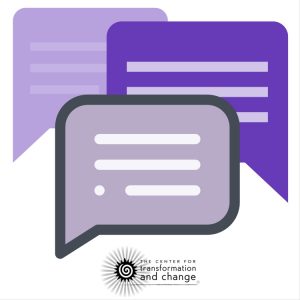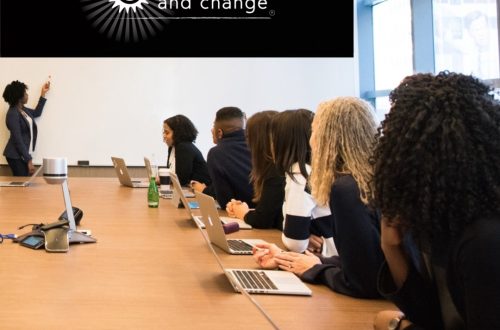When TMI Happens at a Training on Diversity, Equity & Inclusion
It happens sometimes.
Your organization is committed to inclusion. Training sessions offer participants the opportunity to reflect, discuss and comment on exclusion and discrimination within the organization. And the dialogue is meaningful.
Equity & Inclusion Trainings Can Be Intense
But shortly after an intense sharing discussion, a participant expresses concern that they’ve shared a little too much.
As a result, they may feel awkward, uncomfortable, nervous or even scared.
Thinking that’s a problem? It doesn’t have to be.
That negative feeling can serve as the basis for positive sharing. Openly admitting to feeling vulnerable oftentimes encourages others to admit to the same feeling – and authentic dialogue emerges.
Establishing Authentic Dialogue at Your DEI Trainings
When someone feels nervous and afraid, it’s important to ask why they feel that way. For instance, I might say something like:
“I’m curious, could you say more about what you’re feeling now…my guess is that from what you’ve shared, that you felt vulnerable in the moment. You felt comfortable sharing, but afterwards wondered if you shared too much. Could you say more about what your fears are?”
At that point, if they’re willing to share, I might say: “I relate to that. And my guess is other people might be feeling the same thing.”
 Ease their fear of being all alone in their discomfort by allowing others to admit to similar feelings. Ask people who share similar feelings to raise their hands.
Ease their fear of being all alone in their discomfort by allowing others to admit to similar feelings. Ask people who share similar feelings to raise their hands.
You don’t want the person who admits feeling nervous becoming more uncomfortable if no one raises their hand. It can be a risky step, but if you’re watching the room, you probably saw heads nodding in agreement. This brings an opportunity to say: “I’m really glad you brought this up. It says to me that we need to re-establish our working agreements for authentic dialogue.”
Bring Awareness to Every Equity & Inclusion Workshop
When people share honestly and vulnerably as a group, we need to let them know we appreciate what they’ve said.
“To share your weakness is to make yourself vulnerable; to make yourself vulnerable is to show your strength.”
― Criss Jami
Refer back to the session where the person felt they shared too much. I would ask: “My guess is you’re talking about when you told the story about X. Am I right?”
After they respond affirmatively, I would add:
“As I look back, we didn’t spend a lot of time following up and engaging with that. I would love to ask the group the impact on them of you sharing that story. Would you be open to that?”
Notice how the person who felt vulnerable now controls the next step in the dialogue. They most likely will say yes since they had the courage to express their feelings, which probably is a sign they want to feel more connected to the group – they’re just scared.
I want to make sure to follow up by saying: “I personally really appreciated your story and I apologize I didn’t say it last session. That next day I was actually thinking about what you said.”
Now, others who feel the same and feel as vulnerable can relate and share their feelings. They don’t feel isolated in their fears.
Acknowledge the Impact of Feeling Vulnerable
When people share honestly and feel vulnerable, it’s important to let them know their contribution is appreciated.
Ask others in the group how they reacted at that particular moment: who was relating to the story, who felt the same feelings.
At this point, the group may be even more open and honest. At times people share things they’ve never shared before and the group didn’t react fully, it’s important to ask: “What’s the impact of hearing this powerful story? Who else relates?”
 Close the session with a focus on appreciation. Offer a statement like: “I’m full of emotion hearing your story. I really appreciate what you just shared. You’ve got me really thinking about myself. And you’ve got others thinking as well.”
Close the session with a focus on appreciation. Offer a statement like: “I’m full of emotion hearing your story. I really appreciate what you just shared. You’ve got me really thinking about myself. And you’ve got others thinking as well.”
As a result, that initial feeling of feeling scared and nervous is now transmuted into a shared group experience.
Ready to design and facilitate powerful trainings on equity, inclusion and social justice that motivate and skill-up all employees and leaders at your organization? Explore how my newest course on Design & Facilitation can benefit your organization.




